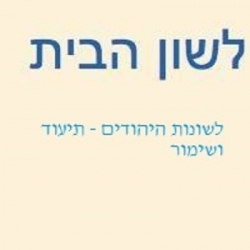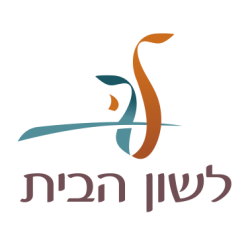Pidyon haben (redemption of the first-born son)

The Preservation of Jewish Languages and Cultures in memory of Hayyim (Marani) Trabelsy

To my sister Zerifa (Zaqen) ʿAdika and to the Zaqen family


To my brothers Meʾir and Tsvi Mizraḥi Z"L

"Mean dachil dela dilia, eina kisufa" – On the Mitzva of hospitality
Once there was a Jewish merchant, who wandered from city to city to sell his commodity. The man went out of the town of Zakho through Amadiya, stayed there until Friday at noon and wondered what he would do, as he does not want to violate the Shabbat. He asked passers-by about the residence of the town's Ḥacham (wise man) until he arrived at the door of his house (maybe it is Ḥacham Avidani, whose name precedes him). He knocked on the door. The Ḥacham opened the door and hospitably greeted him with "Shalom Aleichem" and the man told him "your honor, I have arrived at Amadiya from afar, I do not want to desecrate the Shabbat".
The Ḥacham replied, "Welcome to my home, but you must pay 500 dollars in advance". The man wondered, but thought to himself, it would be better to pay than desecrate the Shabbat. He took out of his pocket the requested amount and gave it to theḤacham Hacham.
The Ḥacham invited him to wash and clean up in the warm water as he likes, towards the Shabbat. The merchant washed, relaxed, and came out fragrant and dressed like a king. The two went out together to pray in the synagogue.
When they returned home, what did the guest's eyes see? A table set with all the finest in the land, prepared and set delicacies, all sorts of meat and fish, fruits and pastries. The guest wondered, yet he was happy, and didn't think at all about the 500 dollars. They made the blessing over the wine, blessed the bread and ate until they were full. After the feast, they started to sing Zemirot (religious songs) for Shabbat. When the guest got tired the Ḥacham offered him to his already cleaned bed. The guest dozed off and slept well.
On Shabbat morning, as he got up, the Ḥacham's wife gave the guest a drink and offered him a large piece of homemade cake. The merchant and the Ḥacham went together to the synagogue. When they returned the table was set with all sorts of goods, cholent, delicacies and kinds of beverages. They blessed the wine and blessed the bread. The guest ate well and was satisfied. The Ḥacham told him "go, rest during the afternoon, and when you get up, we will go to the synagogue for Minha and Arvit".
The two prayed Minha and Arvit at the synagogue and dined there a third meal. When they returned home they did "Havdala". The guest told himself: "I enjoyed this Shabbat so much, 500 dollars are nothing to me, as long as I didn't desecrate the Shabbat".
He started to pack his clothes, zipped his bag and was about to leave the house of the Ḥacham. He went to thank the Ḥacham for the perfect hospitality. The Ḥacham took the 500 dollars out of his pocket and gave them to him. The guest was surprised and asked: "Why did you ask me for 500 dollars?" the Hacham answered: "If I hadn't taken the 500 dollars from you, you'd be ashamed to eat and wouldn't feel comfortable. I took the money from you so you'd eat as you liked and feel free to act like it was your home".
As the saying goes "Mean dachil dela dilia, eina kisufa" *meaning, anyone who eats food that isn't his own, his eye is ashamed. Therefore the Ḥacham asked for 500 dollars in advance, so the guest would feel comfortable and won't be ashamed.
That is why many people in our neighborhood, Zikaron Yosef, also known as the Kurdish neighborhood, anyone who visited them, they would be very hospitable. And why did I tell you this?
Anyone who visits you greet him with a hospitable and respectful manner. The guests repay their hosts with a blessing: "May it always be full, let your home always be wide open".
I came from there, I brought to you regards, a happy holiday greeting, be well, be strong and of good courage.
*"Mean dachil dela'o dilia bahit lestaklu bafia", meaning, anyone who eats food that that isn't his own, is ashamed to look at the feeder" Jerusalem Talmud, Orla (tractate of the Mishna), 81, 53



To my brothers Meʾir and Tsvi Mizraḥi Z"L

To my brothers Meʾir and Tsvi Mizraḥi Z"L

In memory of Tsabaria Ido Zaqen Z"L

A general translation:
A mother who is fearful for her son warns him form the evil spirit of Judea that floats above water, "Night of Huza", during Tisha B'Av. She worries for him and that he might escape through the river (maye maye) and warns him not to walk through the fields (= dashte dashte) and not through the mountains (ture ture), since the residents there are cruel and hate the Jews (heretics) and might kill him. The mother is in fear and sorrow, repeats the words and laments and says: vay li daye = oh my mother, oh my mother.
Lel huza maye maye, ho lel huza
Lel huza maye maye, vay li daye
Lo aziten dashte dashte, ho lel huza
Lo alki boch an dashtaye vay li daye
Kafore'ya ve'alana'ye, ho lel huza
Lag afe el dan huza'ye, vay li daye
Lel huza maye maye, ho lel huza
Lel huza maye maye, vay li daye
Lo aziten ture ture, ho lel huza
Lo alki boch an tura'ye, vay li daye
Kafore ve'alana'ye, ho lel huza
Lag afe el dan huza'ye, vay li daye
Lel huza maye maye, ho lel huza
Lel huza maye maye, vay li daye
(Transcription courtesy of Prof. Yona Saba)
For reading see:
Yona Sabar, Lel Huza: Story and History in Cycle of Lamentation for the Ninth of AB in the Jewish Neo-Aramaic of Zacho, Iraqi Kurdistan, Journal of Semitic Studies, 21 (1976). pp. 138-162
Yona Sabar, The Folk Literature of the Kurdistani Jews: an Anthology, New Haven & London 1982
Yitzḥaq Avishur, Echoes of the Dirges of the Women Who Mourn the Tamm´z in the Dirges of Jewish Women in Kurdistan on Tish'a Be-'Av Night, Ben 'Ever Le'Arav, 5 (2012). pp.145–154